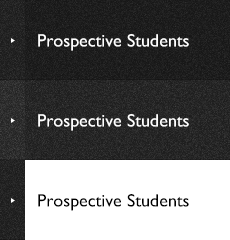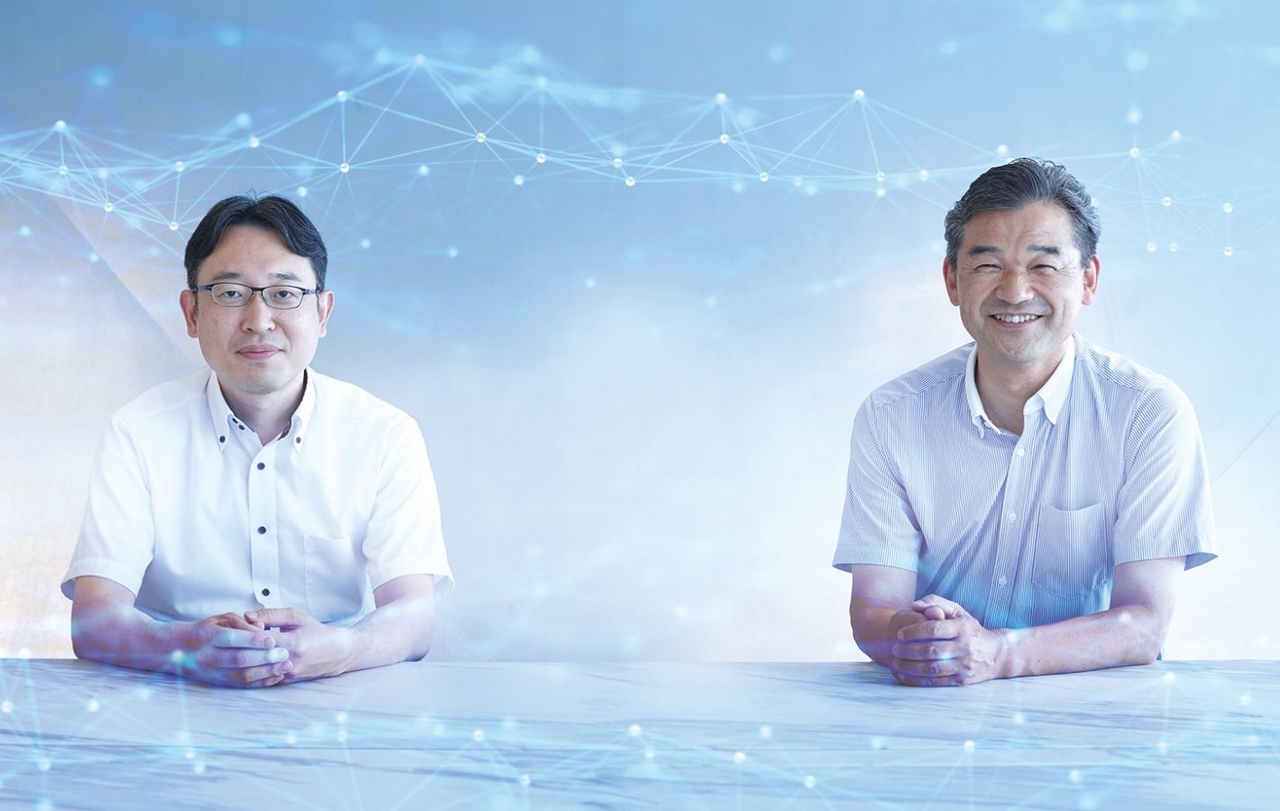
The world of language, familiar yet profound. Humans and AI, their roles in language and communication, and what form our future world will take? Discussing these topics were Professor Naoaki Okazaki, who studies AIs for manipulating language, and Yasumasa Matsui, Tokyo Tech alumnus, former announcer, and reporter.
Human and AI approaches to convey news quickly and accurately
Okazaki:My research focuses on technology for computers to understand and use human language. This technology, called "natural language processing," is used everywhere in our daily lives, such as in AI assistants that answer people's questions and web services that translate texts into foreign languages. It could be said that this research aims to achieve intelligent communication between humans and AI through language. Mr. Matsui, you are truly an expert in language and communication. Why did you decide to become an announcer?
MatsuiActually, it was my dream since elementary school. The reason was that I admired a senior student who appeared on the classroom TV as an MC for a school broadcast. When I was a student at Tokyo Tech, I attended a broadcasting school, and my dream came true when I joined TV Asahi as an announcer. After appearing on many broadcast programs, I now work as a reporter in the news gathering center. Professor Okazaki, are there any technologies in your research that would be useful for news reporting?
Okazaki:Yes, for example, there is a tool that generates headlines for newspaper articles. This was achieved by using the technique of machine translation to train the AI on millions of sets of real newspaper articles and headlines, teaching it how to "translate" long texts into short headlines. Now, you can specify the number of characters for the headline, enter the text of the article, and instantly generate suggestions.
MatsuiIt sounds like it can also be used for tickers displayed at the top of news programs. Very nice. Television and newspapers have their own particular expressions and wording depending on the medium. Can AI reflect that?
Okazaki:Yes, it can. When trained on article data from the same newspaper company, its features are mimicked. In fact, the accuracy has improved considerably, and there are already examples of it being adopted in the real world. However, it is not able to output perfect sentences every time, so the work of checking with the human eye is still necessary.
*1 "Summarizing" language
A tool that automatically generates headlines for newspaper articles was completed three to four years ago. AI reads a large number of articles and compares them with actual headlines to learn how to generate text.
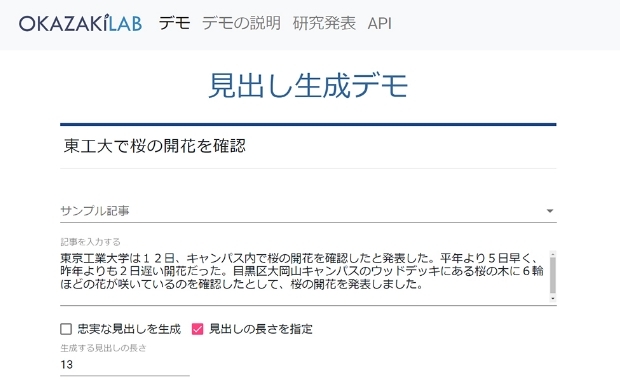
MatsuiCertainly, whether you use the output as is depends on the situation, but it is helpful as a reference. As a matter of fact, creating tickers for news programs is not an easy task. What should be selected for just 30 seconds or 1 minute of news and how should it be conveyed? In addition to "summarizing"*1 information, it is necessary to express the information, taking into consideration information of high interest to viewers and differentiation from the reports of other stations. That's both the difficulty and the fun of it. Tools that cover all these points of view may appear in the near future.
Okazaki:AI is good at summarizing, but it will be difficult for the time being to make flexible decisions based on human psychology, as you mentioned. As you say, the point is not to leave everything to AI, but for people to think about how to use it. The practical application of these tools poses another challenge. That is namely the black box problem related to the reliability of AI. The AI doesn't explain why it gave a particular answer. I feel that it is important for researchers and developers to clearly explain the logic of AI in order to eliminate people's concerns about AI and to use it in various places in the real world.
Announcing using "correct" Japanese, AI learning Japanese through "quantity"
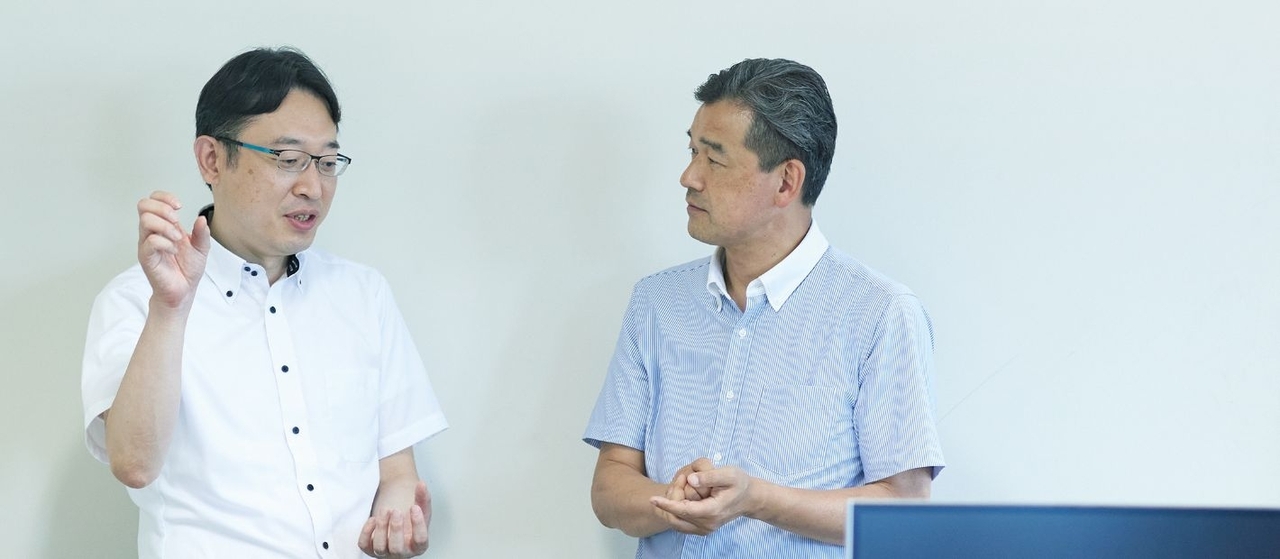
Okazaki:We talked about how to convey information to viewers. What else did you keep in mind as an announcer?
MatsuiFirst of all, the starting point is to speak correct Japanese and convey it to people. Pronunciation, nasal sounds, devoicing, native Japanese words, and "ra-nuki" words are rarely taught at school. As a Japanese language professional, I am proud that the role of conveying information to many people is unique to an announcer. In the world of AI, how do you make Japanese understood?
Okazaki:A computer is trained on a large amount of language data to capture the meaning of words and the structure of texts. Currently, online articles, blogs, and SNSs are the main sources of supervision data. The reason is that a huge amount of text can be collected relatively easily. Rather than learning the correct grammar and meaning of Japanese, you can imagine that the AI learns general usage and tendencies from numerous examples.
MatsuiI see, the amount of data is important. By the way, among everyday words that AI learns, there are quite a few words whose readings and meanings change due to people's misunderstandings. For example, the correct reading for the Japanese word for "dependence" was ison, but gradually more and more people read it as izon, and the latter reading has become established. Although it is an irresistible trend, I often say "announcers should be the last line of defense." Even while keeping up with social trends, the announcer should be the last to change. I think we should not give up on continuing to communicate in the correct Japanese of any point in time.
Okazaki:Natural language processing is another field that studies how language evolves. An announcer who communicates in "correct" Japanese and an AI that grasps social trends from "quantities" of data. I think that the different roles and purposes of each are reflected in their different approaches to language.
The importance of searching and thinking for yourself as revealed by SNS
MatsuiSNS is also apparently used as learning data for AI, but a certain kind of public opinion*2 is formed on Twitter. Is there any research that focuses on the language and opinions exchanged on SNS?
Okazaki:After the Great East Japan Earthquake, I conducted research analyzing Twitter discussions about peaches from Fukushima Prefecture. As is well known, Fukushima's agricultural industry suffered a great deal of damage due to rumors associated with the nuclear accident. In order to investigate the actual situation, we used a method called "sentiment analysis" to follow tweets of the supporter and opposition groups for a given period of time and graphed them. What became clear was that opinions do not change easily. Although supporter and opposition groups did retweet amongst each other, there were almost no cases where they exchanged opinions, and the number of people who changed their opinions was almost zero.
MatsuiThey tend to only accept opinions that are the same as their own. On Twitter, which is highly anonymous, a wide variety of opinions fly back and forth, including irresponsible remarks. I often receive protests and complaints from anonymous viewers in the course of reporting. I believe there is some truth in those opinions. I believe that it is important to sift through the flood of claims and information in your own way. As a reporter, I do a lot of news gathering*3, and if I can't make a decision, I research until I'm satisfied. Sometimes I use the network I have cultivated to ask for the opinions of experts. The "researching, thinking, and grasping appropriate information by yourself" attitude is important even in today's Internet society.
Okazaki:Certainly, I think that this attitude was a major requirement during the COVID-19 pandemic. It was an unprecedented situation, and the opinions of experts were divided. It would be nice if we could make decisions based on listening to and understanding opinions from a variety of perspectives, but there were many people who were swayed by their emotions and surroundings. AI analyzes the opinions of supporter and opposition groups, but cannot persuade. Beyond that, I think people have no choice but to think and decide for themselves.
*2 "Public opinion" seen from SNS
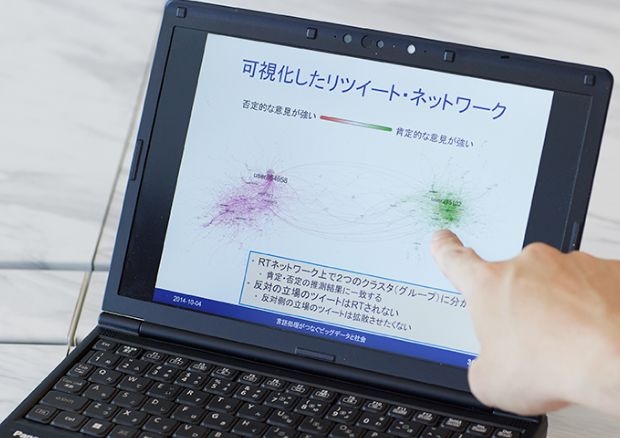
AI analyzes negative and positive retweets about peaches from Fukushima Prefecture and visually expresses them. Opinions in each group visibly solidified, but there was one case in which a person changed to the supporter group after actually eating a peach.
Okazaki Laboratory conducts various research using AI, including this kind of emotion/opinion analysis.
*3 "News gathering" to approach the truth

When I was in charge of the nuclear power plant issue as an announcer, I experienced the Great East Japan Earthquake while personally reporting on the nuclear fuel cycle system in Rokkasho Village, Aomori. Currently, as a reporter in charge of weather disasters, I am acquiring deeper knowledge of earthquakes and volcanoes while collaborating with professors at Tokyo Tech.
Will announcers and AI coexist? Future projections for language and technology
Okazaki:In recent years, the accuracy of machine translation has improved dramatically, so we believe that the number of situations where AI will produce words and texts will increase, and the world will accept it to some extent. Even though the headline generation tool mentioned earlier is inadequate, it will likely be used in media that transmit a large amount of information. The creation of creative texts, for which AI is not good at the moment, should also be further researched and developed.
MatsuiHearing you say that, I think that announcers and AI will naturally coexist in the near future. We actually have an AI announcer at our company, but at this stage, it's just a venture investment. However, the day will soon come when it will be impossible to tell whether a person is speaking or an AI. However, for the time being, roles such as moderating for a show, giving closing remarks, and creating a script from scratch remain the work of humans. It will take some time for AI to learn to pick up on the subtleties of a person's emotions and incorporate them into unconventional conversations and expressions, but I don't think it will be too far in the future.
Okazaki:I agree. As researchers, we must improve performance to meet a wide range of needs and produce more accurate output. The general public who are the users also need to understand the strengths and weaknesses of AI, rather than just blindly believe in it. On top of that, I think it would be good if we could effectively divide roles.
MatsuiThat means having the knowledge and AI literacy to use it correctly. After all, I thought that any field ultimately depends on how people use it. AI and announcers. I am very excited to think that after each of us has evolved and studied hard, a future of collaborating may be on the horizon.
Still a long way to go deepening intellectual curiosity
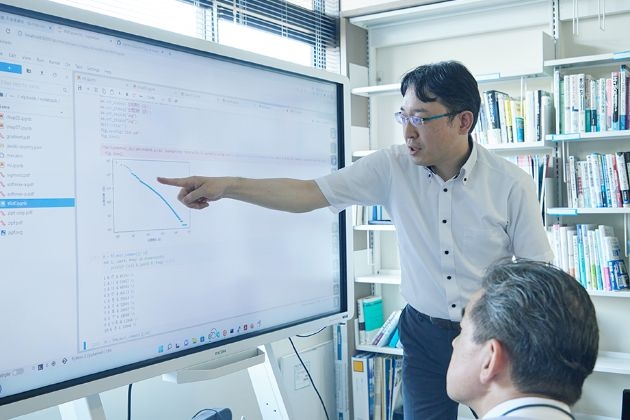
Language processing
With the recent evolution and spread of AI, an increasing number of people want to learn language processing. Okazaki has released a collection of exercises titled "NLP 100 Exercise" for free online. It is a mechanism for acquiring the necessary programming and data analysis skills through solving 100 problems. An open exchange of knowledge is taking place, with many people taking on the challenge and releasing examples of solutions.
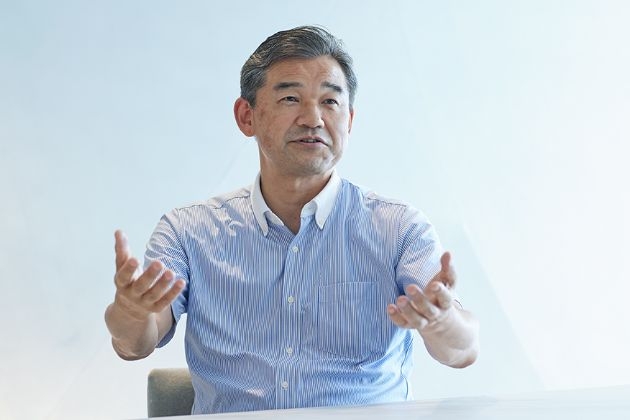
Japanese language
One of the reasons why Japanese is changing is people's assumptions. The words yoron and seron, which originally had different meanings, are used together for the Japanese word for "public opinion." When the wrong usage becomes the majority usage, newspaper companies and broadcasting stations revise their rules, and the correct reading and meaning change.
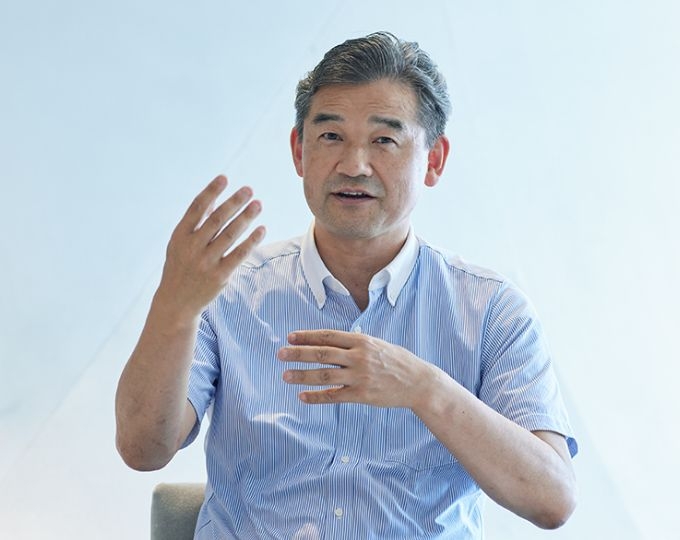
"What kind of language will you convey in just 30 seconds of news? We need expressions that capture the essence of information and move people."
Yasumasa Matsui
TV Asahi Corporation News staff (former TV Asahi announcer)
Born in Toyama prefecture. Graduated from the Department of Chemical Engineering, School of Engineering, Tokyo Institute of Technology. Joined TV Asahi as an announcer and has worked on numerous programs including "News Station." Served as the principal of the company's broadcasting school for two years, and after being transferred to the news department, was in charge of social issues such as nuclear power plants and weather disasters as a reporter. Also known as a plastic model enthusiast.
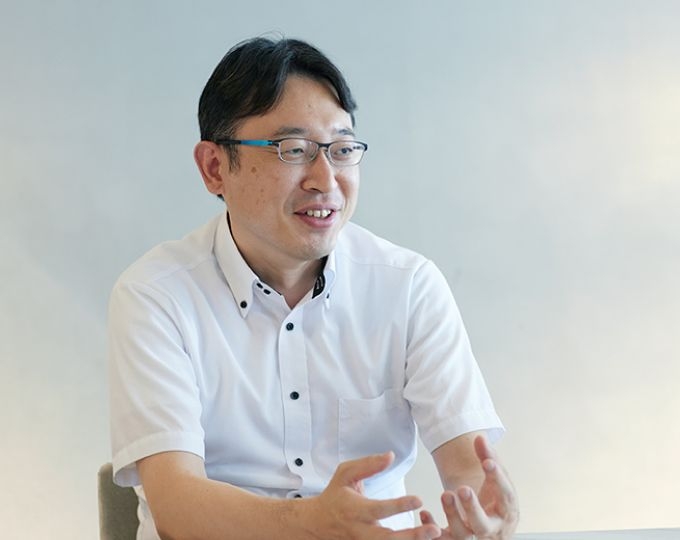
"Summarize and translate sentences and have a smooth conversation. Our goal is an AI that can understand and use human language."
Naoaki Okazaki
Department of Computer Science, School of Computing, Tokyo Institute of Technology, Professor
Born in Tochigi prefecture. Earned his doctoral degree at Department of Information and Communication Engineering, Graduate School of Information Science and Technology, the University of Tokyo. Ph.D. in Information Science and Engineering. In addition to working on AI research specializing in natural language processing, he also conducts knowledge acquisition using big data analysis. He is also involved in releasing open-source software that can be used by anyone, and many collaborative research projects with companies focused on real-world problems.
The Special Topics component of the Tokyo Tech Website shines a spotlight on recent developments in research and education, achievements of its community members, and special events and news from the Institute.
Past features can be viewed in the Special Topics Gallery.
(Interview held on June 28, 2022 at Ookayama Campus)
. Any information published on this site will be valid in relation to Science Tokyo.












